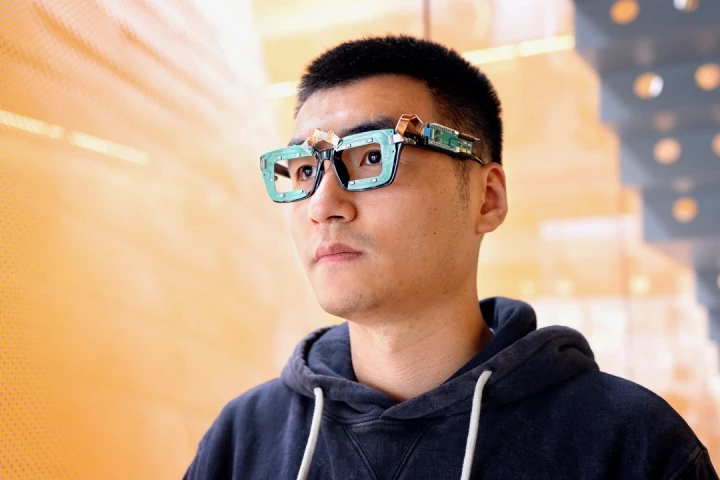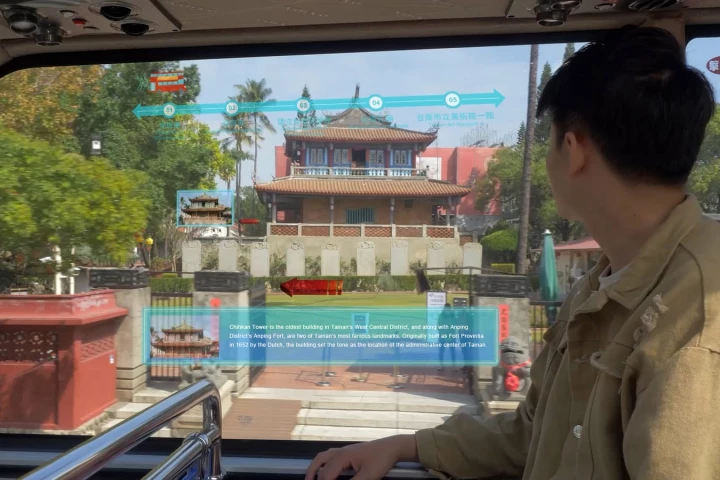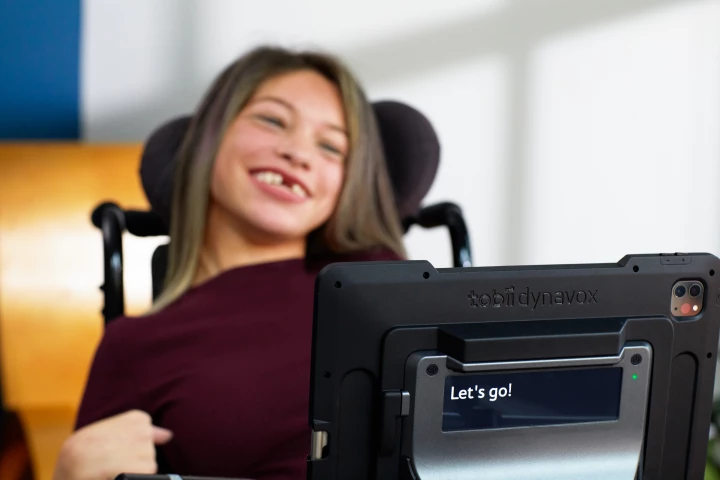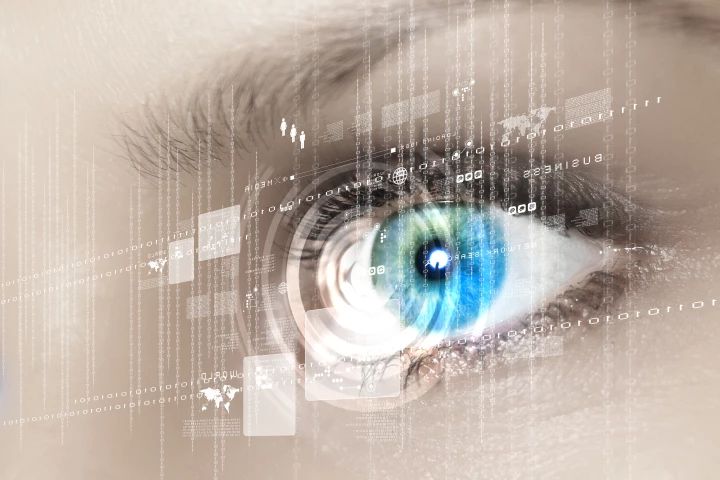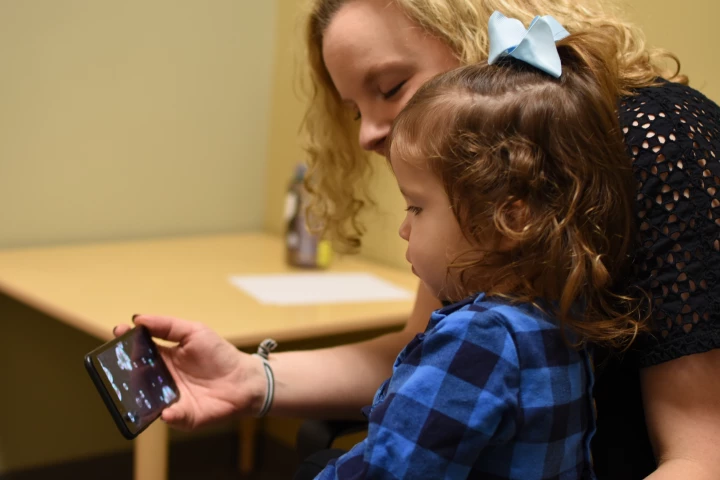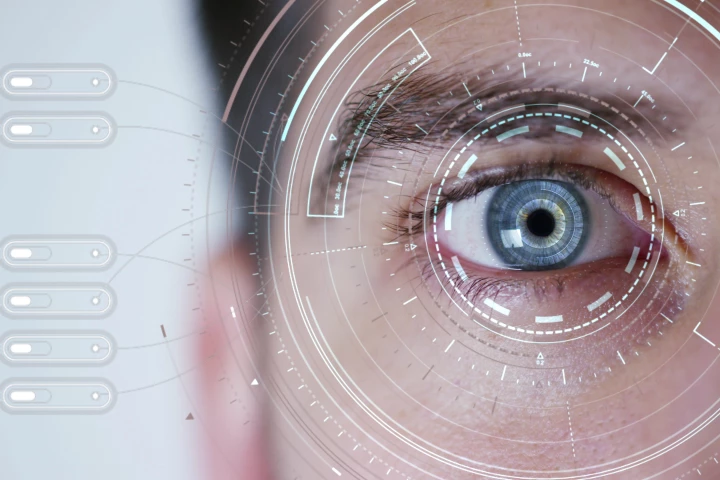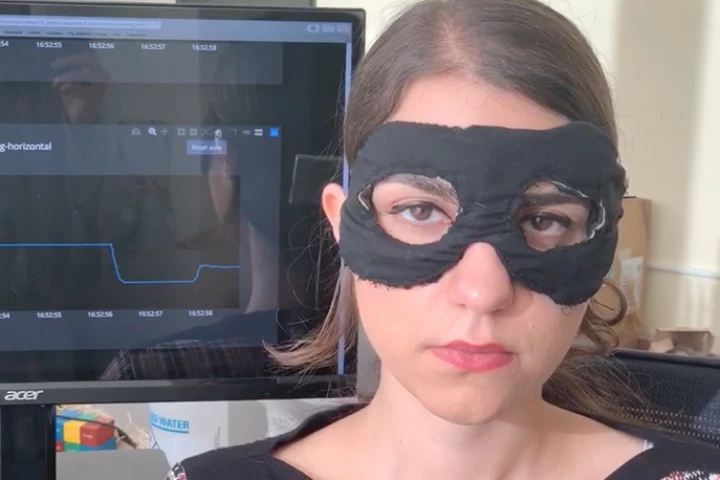Eye-tracking
-
A team of researchers in China has developed a remarkable device to allow people with limited mobility to use computers and experience VR content by moving their eyeballs – and to power the gadget simply by blinking.
-
Blinking isn’t just about keeping eyes moist. New research suggests we blink less when listening becomes hard, with each pause reflecting increased focus. The findings hint that blinking may track how hard our brains are working to listen among noise.
-
Two new technologies allow a single pair of glasses to track eye movements and read the wearer's facial expressions, respectively. The systems use sonar instead of cameras, for better battery life and increased user privacy.
-
If you're on a sightseeing tour in a bus, you really don't want to be looking away from the passing attractions to Google them on your smartphone. The AR Interactive Vehicle Display is intended to help, by showing relevant information on the vehicle's window glass.
-
In fast-paced sports such as tennis, keeping your eye on the ball – and on your opponent – is essential to success. The FalconFrames wearable was designed with that fact in mind, as it's claimed to help boost its user's neuro-visual skills.
-
While breathalyzers make it quick and easy to tell if someone is drunk, it takes more time and effort to determine if they're intoxicated by drugs such as cannabis. A new device known as Gaize could reportedly soon change that.
-
Autism spectrum disorder (ASD) symptoms generally appear in the first two years of a child’s life. A new study has found that toddlers’ visual attention to geometric images is a reliable biomarker for the early identification of autism.
-
After developing hardware for computers and laptops for years, Sweden's Tobii Dynavox has now brought its eye-tracking know-how to Apple's iPad, giving a voice to folks with conditions like cerebral palsy, ALS and spinal cord injury.
-
A study is describing a biomarker to identify a person’s risk of developing anorexia nervosa. The research proposes measuring levels of anxiety alongside a type of twitching eye movement can identify those with, and at risk of developing, the disorder.
-
Although it's certainly best to start addressing autism as early as possible, the disorder is often difficult to detect in young children. A new iOS app has been designed to help, by tracking a child's eyes as they watch videos.
-
Eye tracking cameras and AI analysis can reveal your identity, gender, age, ethnicity, weight, personality traits, drug habits, emotions, skills, abilities, fears, interests, and sexual preferences, says a rather dystopian research review.
-
When tracking a sleeping person's eye movements, you typically have to stick hard-wired electrodes onto their face. Soon, however, an unobtrusive flexible mask could do the job – while also measuring their heart rate.
Load More

